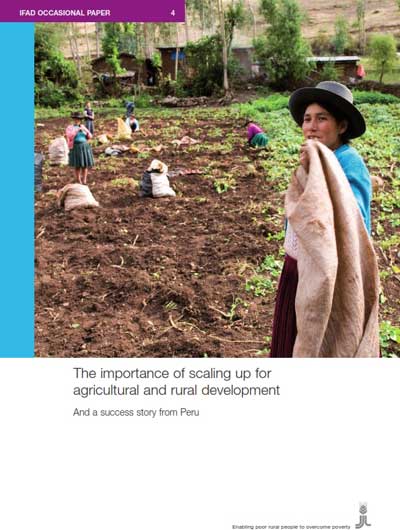Occasional paper 4: The importance of scaling up for agricultural and rural development
Occasional paper 4: The importance of scaling up for agricultural and rural development
July 2013
The thesis of this article is that governments of countries that plan their agricultural and rural development programmes on a large scale – typically covering the entire agriculture sector and including all or most of the important ingredients for agricultural growth and rural development – do better in terms of agricultural production and reduction of rural poverty and hunger than do country governments that do not invest broadly and at scale in such development. The reason, for most low-income countries, is that agriculture still constitutes the most important economic sector, uses the most labour and contains the majority of the poor, who are also the majority of the hungry. Government action to stimulate agriculture at scale pays off by increasing food production and rural incomes. Donors that contribute to government programmes at scale and for the long term thus contribute more to this success than donors that do not operate at scale, and that have short-term objectives or invest in small-scale projects. IFAD’s experience in Peru, in which it supported the Government in scaling up agricultural and rural development investments in poor areas of the Peruvian Andes over a period of 20 years, has paid off spectacularly in terms of poverty reduction. The Peruvian example points to two critical ingredients: government commitment to operating at scale and donor willingness to support governments in doing this.
